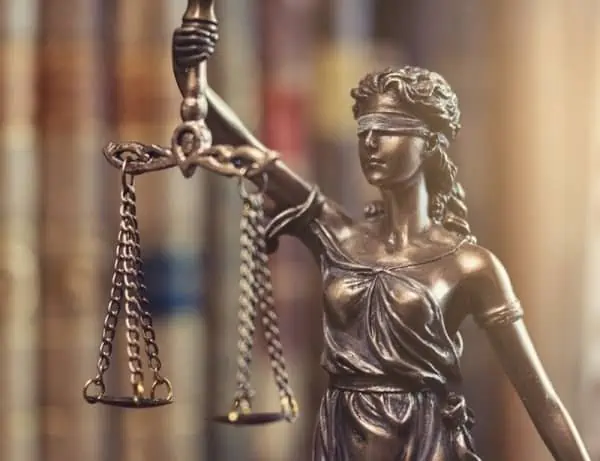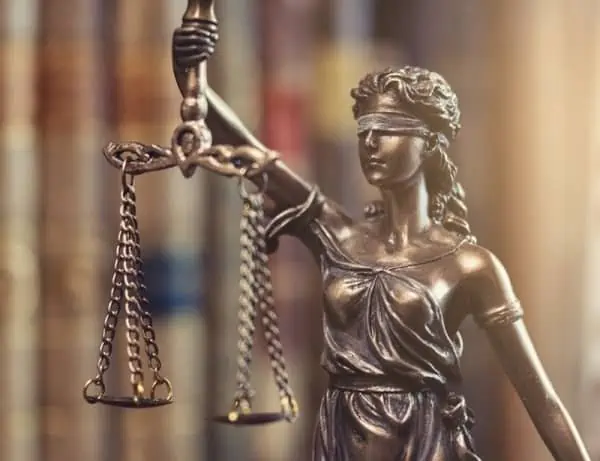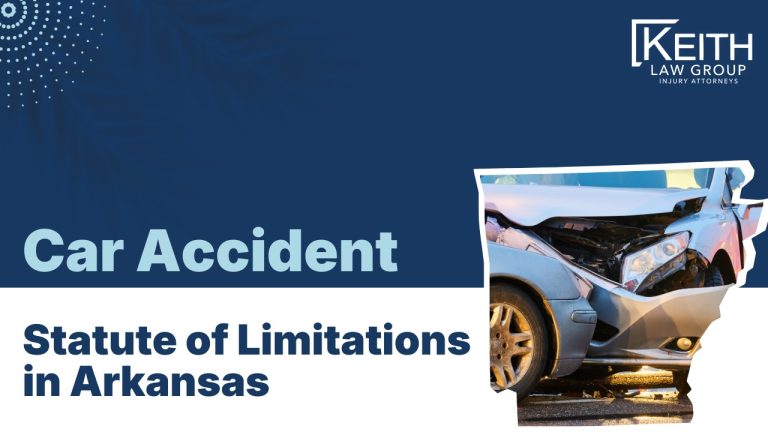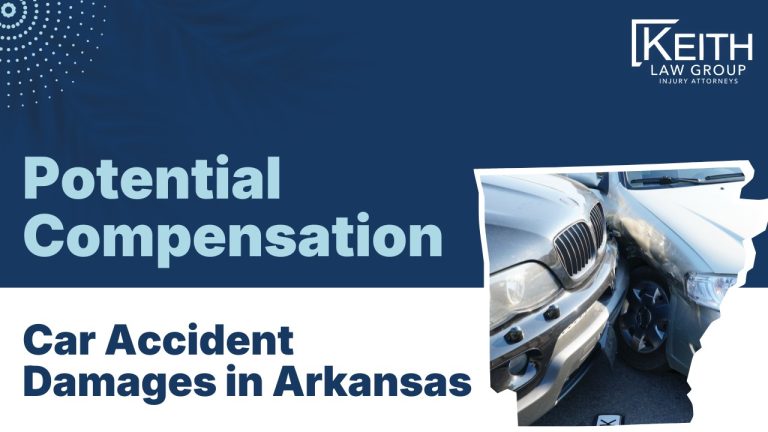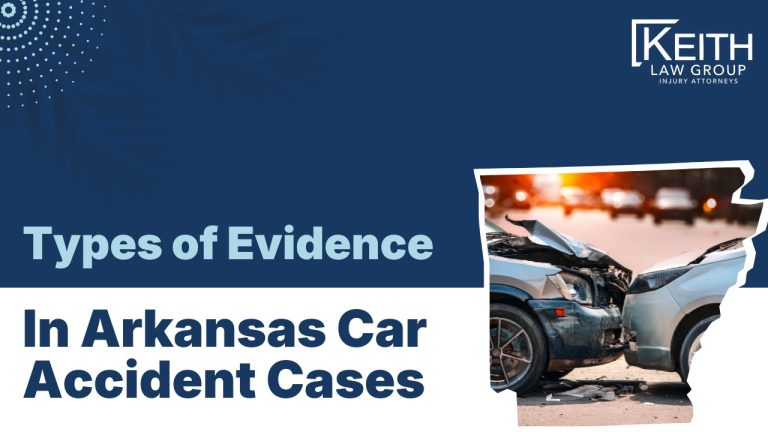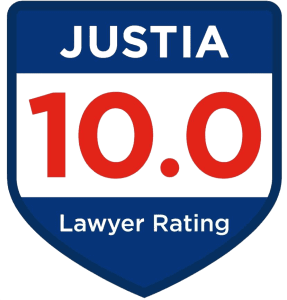- Published:
- Last Updated: February 17th, 2026

Attorney Sean T. Keith has been a personal injury lawyer for 30+ years, a nationally recognized Top 100 Trial Lawyer, and top car accident lawyer & motor vehicle accident lawyer in Arkansas.
Legally Reviewed
This article has been written and reviewed for legal accuracy and clarity by the team of writers and attorneys at Keith Law Group and is as accurate as possible. This content should not be taken as legal advice from an attorney. If you would like to learn more about our owner and experienced injury lawyer, Sean T. Keith, you can do so here.
Fact-Checked
Keith Law Group does everything possible to make sure the information in this article is up to date and accurate. If you need specific legal advice about your case, contact us. This article should not be taken as advice from an attorney.
Sean Keith's Accollades & Practice Areas He Specializes In
- Over $20 Million recovered in Medical Device Injury Lawsuits.
- Over $13 Million recovered in Car Accident Lawsuits and other Motor Vehicle Accident Lawsuits.
- Over $100 Million recovered in total on behalf of clients.
- Sean represents clients in cases involving personal injuries, car accidents, motorcycle accidents, truck accidents, wrongful death, slip and falls, nursing home abuse cases, nursing home elopement cases, and more.
Intro to Car Accident Reporting
Did you know that accurate car accident reporting is crucial not only for legal reasons but also for insurance claims?
In Arkansas, motorists have a responsibility to report crashes in accordance with traffic laws and order reports as needed.
Failing to do so can result in severe consequences, including fines and penalties, which may impact their relationship with their insurance agent.
Arkansas law requires motorists to report accidents involving injuries, fatalities, or property damage exceeding $1,000.
This information helps independent entities like the police department, DMV, and insurance companies assess liability and determine fault.

It’s essential to provide accurate details such as location, license plate number, and contact information when filing a report with your agent.
Remember that your insurance policy may be affected if you don’t comply with state regulations and order inspection reports.
So next time you find yourself in a crash or fender bender within the corporate limits of any key city in Arkansas, make sure to follow the proper reporting procedures—it could save you a lot of trouble down the road!
Table of Contents
Steps to Take After a Car Accident in Arkansas
Assess Injuries and Call 911
After a crash, the first thing you should do as a motorist is assess your own condition and that of other driver and any passengers:
- Check yourself and passengers for injuries
- If anyone is injured, call 911 immediately
- Even if injuries from accident reports seem minor, it’s essential for the crash motorist to seek medical attention and inform their agent.
If anyone is injured or in pain, call 911 immediately to report the accident and request an officer.
Don’t assume that seemingly minor injuries can be ignored; they may worsen over time or lead to complications, and adhering to traffic law is essential for everyone’s safety.
Move Vehicles to a Safe Location
- If possible, move vehicles out of traffic lanes
- Use hazard lights and safety triangles if available
- Avoid moving severely damaged cars
If it’s safe to do so, try to move your vehicle and any others involved in the accident out of traffic lanes.
This helps prevent further accidents and keeps the roadway clear for emergency responders and officer reports.
Turn on your hazard lights or use safety triangles if you have them.
However, if the driver of a car is severely damaged or someone is trapped inside, don’t attempt to move it.
Make sure to report any changes to the DMV as required.
Exchange Information with Other Drivers
- Share names, contact information, and insurance details
- Obtain vehicle make/model/license plate numbers
- Be polite but avoid admitting fault or discussing details of the accident, and remember to file reports within days, as per your insurance policy, to avoid any fee.
When speaking with other drivers involved in the accident, exchange important information such as names:
- phone numbers
- addresses, insurance company details (including policy numbers and fee)
- driver’s license numbers (if comfortable)
- vehicle makes/models/license plate numbers, and any relevant reports
Remain polite during this process but avoid admitting fault or discussing specific details about what happened.
It may also be helpful to search for any additional insurance information anywhere on your bill that could be useful in this situation.
Document the Scene with Photos and Notes
Documenting the following details from the scene:
- Take photos from multiple angles showing damage to all vehicles for accident reports, ensuring to search for and include the number of damaged vehicles and relevant insurance policy information.
- Capture images of road conditions, accident reports, any relevant signage/traffic signals, and search for policy and fee information.
- Note specifics like time/date/location/weather conditions
- Collect witness statements/contact information if available
To help build a solid case for your insurance claim or potential legal action, thoroughly document the accident scene.
Use your smartphone to take photos from various angles, capturing damage to all other vehicles also involved and any surrounding property.
Also, photograph road conditions, relevant signage, and traffic signals that may have played a role in the accident.
In addition, prepare reports on the incident and search for any discrepancies in your policy to avoid unexpected fee issues.
In addition to visual documentation, jot down important details like the time/date/location of the accident and current weather conditions in your reports.
If there are witnesses who saw what happened, ask for their statements and contact information to support your search for information and adhere to policy.
By following these steps after a car accident in Arkansas, you’ll be better prepared to handle policy matters, insurance claims, or legal issues that may arise.
Remember: safety first! Always prioritize your well-being and that of others involved before addressing logistical concerns, such as reports or search for information.
Filing an Arkansas Police Report After an Accident
Determine if a Report is Required
In Arkansas, not all car accidents require police reports. However, it’s essential to know when you need to file one.
Here are the general guidelines for report filing policy, which you can search for more information:
- Property damage exceeding $1,000
- Any injury or death resulting from the accident
If your situation meets either of these criteria, you must file a police report or accident reports, as per policy.
Contact Local Law Enforcement Agency
Once you’ve determined that a police report is necessary, reach out to the appropriate local law enforcement agency for assistance in accordance with their policy.
This could be:
- City Police Department (for accidents within city limits)
- County Sheriff’s Office (for incidents in unincorporated areas)
- Arkansas State Police (for crashes on state highways)
To contact them:
- Call 911 for emergencies or use the non-emergency number according to policy.
- Provide your location and details about the accident
- Wait for an officer to arrive at the scene
Provide Accurate Details About the Accident
When speaking with law enforcement officers, it’s crucial to provide accurate and detailed information about the accident according to policy.
Some essential details include:
- Date and time of the incident
- Location of the crash
- Parties involved (names, contact information, insurance details)
- Description of vehicles involved (make, model, color)
- Any injuries sustained by drivers or passengers
- Witness statements and contact information
- Weather conditions during the accident
Remember to stick to facts and avoid speculating on fault or policy.
Obtain a Copy of The Police Report
After filing a police report in Arkansas, you may want to obtain a copy for personal records, insurance policy purposes, or other needs.
To order reports:
- Visit Arkansas State Police website
- Fill out the required form with relevant policy details (date of accident, report number, etc.)
- Pay the associated fees
- Receive your copy via mail or email
Keep in mind that it may take a few days to process your request and policy.
Tips for Reporting an Accident to the Arkansas Police
Remain Calm and Cooperative
- Take a deep breath and try to stay composed
- Speak clearly and respectfully with officers
- Answer questions honestly, without exaggerating or downplaying details
Avoid Admitting Fault or Assigning Blame
- Stick to the facts of what happened
- Let law enforcement determine who was at fault
- Don’t argue with other drivers or witnesses on the scene regarding policy
Be Prepared with Relevant Documents
Have these items ready when speaking with a police officer:
- Driver’s license
- Vehicle registration
- Proof of insurance
Follow Up on Additional Requirements from Law Enforcement
After reporting the crash report the accident, be sure to:
- Obtain a copy of the accident report for your policy records
- Complete any necessary paperwork requested by law enforcement
Managing Your Coverage and Policy Online
Notify Your Insurance Company Promptly
After a car accident, it’s crucial to notify the emergency services and your insurance company as soon as possible.
Most insurers offer online policy service options for reporting accidents, making it easy to get the process started right away.
Don’t hesitate to reach out to your agent or contact their customer service department if you need assistance.
Review Policy Coverage Specifics
Before submitting a claim, take some time to review your insurance policy coverage and costs related to accidents.
This will help you understand what’s covered and any potential limitations or exclusions that may apply.
Some key points to consider include:
- Deductibles
- Collision coverage
- Comprehensive coverage
- Rental reimbursement
- Medical payments/personal injury protection (PIP)
If you have questions about your policy or need clarification on specific terms, don’t hesitate to contact your insurance agent or agency for more information.
Submit Necessary Documentation Online
Many insurance companies now allow you to submit documentation related to an accident through their website or mobile app, as per your policy.
This can include photos of the damage, police reports, witness statements, and other relevant information.
Be sure to gather all necessary documents and submit them promptly so that your claim can be processed efficiently according to your policy.
Monitor Claim Status Through Insurer’s Website
Once you’ve submitted a claim on your policy, it’s essential to monitor its status through your insurer’s website regularly.
Most insurance companies provide real-time updates on claims progress and will often send email notifications when there are changes in status.
Many insurers offer online tools that allow you to request for:
- View claim details and updates
- Upload additional documentation if needed
- Communicate with your claims adjuster
- Schedule vehicle inspections or repairs
- Request rental car arrangements (if applicable)
By staying informed about your claim’s progress and actively participating in the claims process itself, you can help ensure a smooth resolution.
Consulting an Arkansas Lawyer About Accident Reporting
Understand Legal Rights and Responsibilities Post-Crash
An Arkansas lawyer can help you understand your legal rights and responsibilities following a car accident.
They will inform you about:
- The importance of filing an accident report
- Timeframes for reporting accidents
- Necessary information to include in the report
- How to obtain copies of accident reports for insurance purposes
By understanding your legal obligations, you can avoid potential issues with law enforcement or insurance companies.
Receive Guidance on Navigating Complex Situations
Car accidents can lead to complex situations involving multiple parties, injuries, and property damage.
An Arkansas lawyer can provide guidance on:
- Dealing with insurance companies
- Gathering evidence and documentation related to the crash
- Determining fault and liability
- Negotiating settlements with other parties involved
With their expertise in traffic law, a lawyer can help you navigate these complexities and ensure that your interests are protected.
Assistance with Potential Disputes or Litigation
In some cases, car accidents may result in disputes or litigation.
An Arkansas lawyer can assist by:
- Representing you in court if necessary
- Preparing legal documents and arguments on your behalf
- Advising on strategies for resolving disputes outside of court (e.g., mediation)
- Communicating with opposing counsel during negotiations or litigation proceedings
Having an experienced attorney by your side can increase the likelihood of a favorable outcome in these situations.
Protecting Your Interests Throughout the Process
From the moment a car accident occurs, it’s crucial to protect your interests.
An Arkansas lawyer will work diligently to:
- Ensure that all required accident reports are filed promptly and accurately.
- Advocate for fair compensation for any injuries sustained or property damage incurred.
- Defend against any claims made against you by other parties involved in the crash.
- Keep you informed about developments in your case, including updates on negotiations or litigation.
By retaining an Arkansas lawyer, you can focus on your recovery while they handle the legal aspects of your accident.
Importance of Proper Car Accident Reporting in Arkansas
In conclusion, proper car accident reporting in Arkansas is crucial for various reasons.
It ensures that you follow the necessary steps after a car accident, such as filing an accurate police report and managing your insurance coverage online.
Furthermore, consulting with an Arkansas lawyer can provide valuable guidance on navigating the complexities of accident reporting.
Taking these measures not only safeguards your legal rights but also helps maintain road safety and accountability.
So, make sure to prioritize accurate and timely car accident reporting to protect yourself and others on the road.
Frequently Asked Questions
-
After a car accident in Arkansas, you should ensure everyone’s safety, call 911 if needed, exchange information with other drivers involved, document the accident report and scene (e.g., photos), contact your insurance company, and file a police report.
-
You can file a police report by contacting the local law enforcement agency where the accident occurred or visiting their office in person.
Some agencies may also offer online reporting options.
-
When reporting an accident to the Arkansas Police, provide details such as date and time of the incident, location, parties involved (including contact information), vehicle descriptions (make/model/license plates), damage sustained by all vehicles involved, any injuries or fatalities sustained during the incident.
-
Most insurance companies offer online portals where you can access your policy details, update personal information or coverage levels, submit claims or supporting documents related to accidents/incidents involving your insured vehicle(s).
-
Consulting with an experienced lawyer specializing in car accidents can help ensure that you fulfill all legal requirements, protect your rights, and potentially maximize any compensation you may be entitled to receive.
They can also provide guidance on navigating the complexities of accident reporting and dealing with insurance companies.
-
Yes, failing to report a car accident in Arkansas may result in penalties such as fines or even criminal charges (depending on the severity of the incident).
It could negatively impact your insurance coverage and claims process.
-
It’s best to report a car accident to your insurance company as soon as possible, ideally within 24 hours of the incident.
Prompt reporting can help expedite any claims processing and ensure that you meet all necessary deadlines outlined by your policy.
All Posts for the Car Accident Lawsuit Legal Guide
Practice Areas
You pay
Nothing
unless we win
Do You Have A Case?
Recent Legal Posts & Articles
Recent Legal Guides

Choose Us For Your Personal Injury Case
- Available 24/7
- No Upfront Fees
- Free Case Evaluation
- No Fees Unless We Win!

